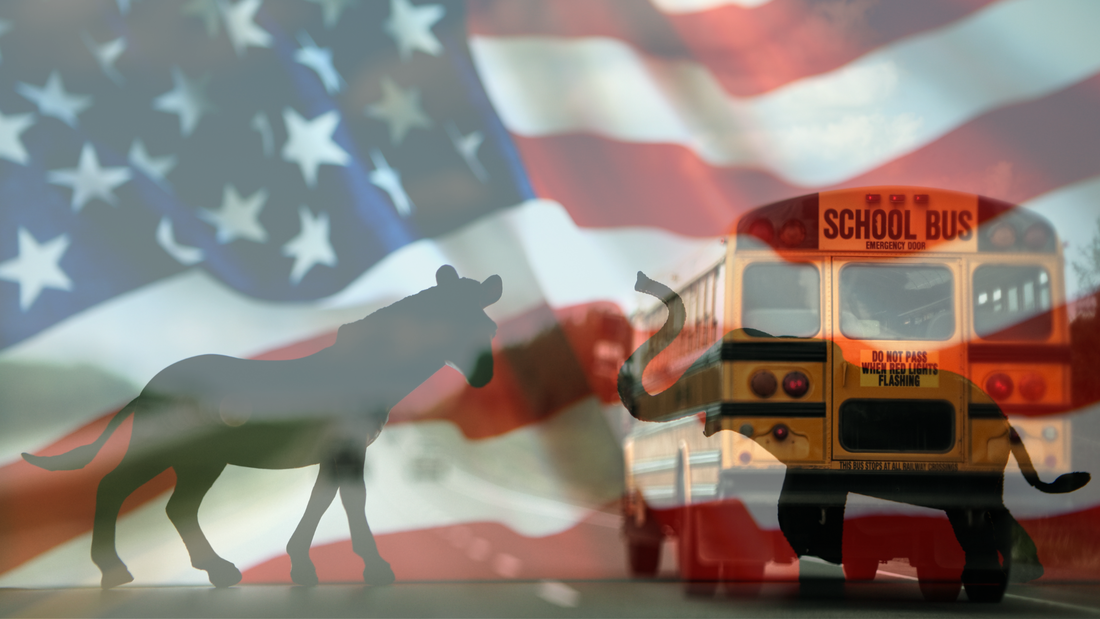|
Like so many issues, school choice is caught in the never-ending spin cycle of interest groups and partisan politics. This is a shame because low-income children in areas where public schools are faltering deserve better options. Protect The 1st sees school choice as especially important because it is helps parents fulfill the First Amendment’s free exercise of religion by having the option to send their children to private schools in their faith tradition.
But politics get in the way – and the rhetoric gets heated. In a recent interview, American Federation of Teachers president Randi Weingarten likened school choice advocates to 1950s-era segregationists. Her remarks did not land well. Referencing terms like “choice” and “parental rights,” Weingarten said: “Those same words that you heard in terms of wanting segregation post-Brown v. Board of Education, those same words you hear today.” One person who didn’t much care for Weingarten’s comparison was U.S. Sen. Tim Scott, who said in a Tweet (X post): “I can’t think of anything more racist than teachers’ unions trapping poor Black kids in failing school in big blue cities. Randi Weingarten, you’ve done enough damage.” Sen. Scott grew up Black and poor in South Carolina in a home where the electricity was often turned off. He credits a mentor and a good education – “the closest thing to magic in America” – with turning his life around. He has long been a defender of school choice, calling it “the civil rights issue of our time.” Like Sen. Scott, we believe that parents should have the opportunity to choose the education that best suits the specific needs of their children – whether it’s a public or private school, religious or secular. Suggesting school choice is some sort of Trojan horse for religious indoctrination perverts the issue, but that’s exactly what Weingarten did. Referring to school choice advocates, Weingarten said: “They want to have basically a Christian ideology, their particular Christian ideology, dominate the country, as opposed to a country that was born on the freedom of the exercise of religion.” Catholic League president Bill Donohue, like Sen. Scott, took issue with Weingarten’s comments, suggesting that she was engaging in “Christian bashing” (which, like pickleball, seems to be an increasingly popular national pastime). That hostility, by the way, overlooks the broad array of religious schools that are associated with all the great world religions, as well as private and charter schools with a more secular orientation. Some seem to have a complete disconnect with real-world reality. Look no further than Chicago Teachers Union president Stacy Davis Gates, who recently came under fire for sending her own child to private school. She should have every right to make that choice; it’s the hypocrisy that rankles. In 2022, Gates responded to Sen. Scott: “School choice was actually the choice of racists. It was created to avoid integrating schools with Black children. Now it's the civil rights struggle of our generation?” Perhaps it is more of a class issue. Gates can afford to send her child to a private school. An insightful piece from Rick Hess in EducationWeek takes on the idea that one must either be a stout defender of public education or of school choice. He writes “the vitriol is disconnected from what most families care about.” Hess notes that 7 in 10 parents are satisfied with their child’s experience in a public district school, while 7 in 10 also endorse educational savings accounts, school vouchers, and charter schools. Hess writes: “That’s the real promise of educational choice: It allows parents, educators, and students to blur the old lines and rethink the work of teaching and learning. It’d be a shame if that becomes lost amid the shouting heads and social media outrage.” School choice offers families the chance to express their values and create better lives for the next generation. We all want public schools to succeed, and we should welcome any opportunity to have a robust discussion on the issues. Educating our children should not be a partisan concern, and name-calling – as they taught us in school – is never the way to resolve our differences. Comments are closed.
|
Archives
June 2024
Categories
All
|
ABOUT |
ISSUES |
TAKE ACTION |



 RSS Feed
RSS Feed